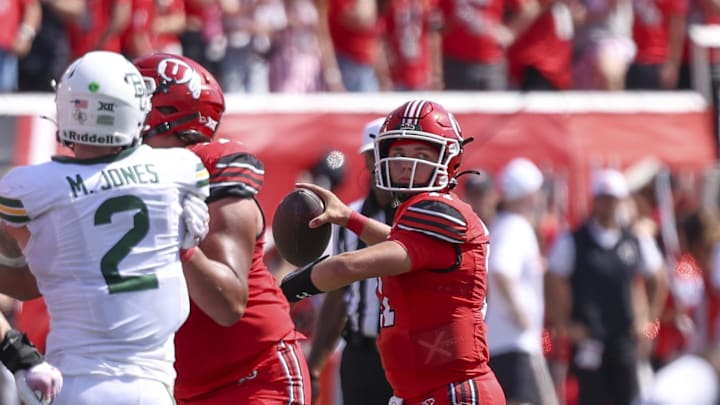Utah Judge Dismisses Case on NIL Deals as Public Records

On Sept. 11, Utah Third District Judge Amber Mettler dismissed a case that would have required Utah's public universities to disclose college athletes' name, image, and likeness (NIL) contracts.
This decision aligns with the interests of five public universities in Utah; the University of Utah, Utah State, Weber State, Utah Valley, and Southern Utah.
The Utah Legislature passed a law earlier in 2024 that shields NIL agreements from the state's open records law, known as the Government Records Access and Management Act (GRAMA). This law was enacted in response to Deseret News's attempt to obtain these contracts through GRAMA. Judge Mettler ruled that this law applies retroactively, even though the word "retroactive" is not explicitly used in the statute.
Deseret News, represented by attorney Jeff Hunt, argued that when they filed their GRAMA request in July 2023, no law existed that made student-athlete NIL agreements off-limits to the public.
Hunt expressed disappointment in the ruling, stating, "While we respect the court's decision, we strongly disagree with it. At the time the Deseret News filed its GRAMA request, no law existed putting student-athlete NIL agreements and related compliance records off limits to the public. And while the legislature did eventually pass such a law, it did not make it retroactive to GRAMA requests and appeals filed before the effective date. The court's ruling unfortunately guts the rights of journalists to rely on GRAMA to inform the public on issues of public concern, including whether Utah's public universities are actually reviewing NIL agreements for compliance with the law and NCAA eligibility requirements."
In October 2023, the Utah State Records Committee ruled that NIL contracts are not "education records" under the federal Family Education Rights and Privacy Act (FERPA) and ordered the universities to release the documents.
The committee allowed universities to redact personal information but required disclosing the athlete's name, sport, compensation, and business.
However, the universities contended that NIL contracts are "education records" protected under FERPA and that releasing them would be an unwarranted invasion of privacy. They also argued that publicizing these contracts would put Utah schools at a competitive disadvantage in recruiting.
The law passed by the Utah Legislature requires college athletes to submit any NIL contract over $600 in value to their university for review. It also prohibits the use of tax dollars for NIL purposes and bans athletes from promoting certain products like tobacco, alcohol, and firearms. The law states that NIL agreements and related materials are not subject to GRAMA, including contracts signed before the law existed.
Governor Spencer Cox, who signed the legislation, stated that while he dislikes NIL, it is necessary to keep Utah schools competitive. He emphasized the importance of protecting young people and minors involved in these agreements.
The issue of whether NIL contracts should be public records is not unique to Utah.
Universities nationwide have generally refused to make these contracts public, citing FERPA. The Utah Records Committee's ruling was one of the first to challenge this stance. The court's ruling comes as colleges and universities await a final determination on a proposed settlement that would allow schools to pay athletes directly.
It remains unclear whether such payments would be considered public records.
